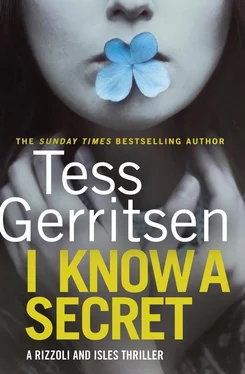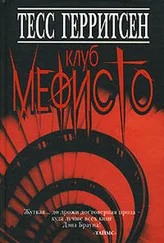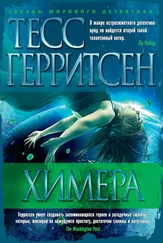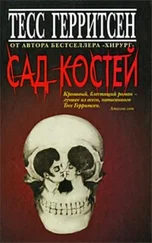“Bonnie Sandridge can fill in the gaps. We just have to get her to talk.”
“You have no proof she helped Stanek kill anyone.”
“The proof has to be here in this house, or in her car. Hairs, fibers from the victims. A stash of ketamine. We’ll find something .”
Jane sounded certain of herself, but Maura felt far less confident as she walked outside and climbed into her car. There she sat, staring at the brightly lit house. Silhouettes of crime-scene personnel moved past windows, searching for evidence to support what they already believed: that Bonnie Sandridge was the killer’s accomplice. Confirmation bias had tripped many a scientist, and no doubt many a cop as well. You find only what you’re looking for, which makes it far too easy to overlook everything else.
Her cell phone pinged with a text message and she glanced at the sender’s number. At once she dropped the phone back into her purse, but that one glimpse made her stomach churn. Not now, she thought. I’m not ready to think about you.
On the drive home, that unanswered text message felt like a ticking time bomb in her purse. She forced herself to keep both hands on the steering wheel, to fix her gaze on the road. She should not have reopened the door between them, not even a crack. Now that they were speaking again, she wanted nothing more than to welcome Daniel back into her life, into her bed. Bad move, Maura. Be strong, Maura. You must be your own woman.
At home she poured herself a much-needed glass of zinfandel and served the Beast his belated dinner. The cat ate without so much as a glance her way, and when he’d licked up the last morsel of chicken, he simply walked out of the kitchen. So much for the joys of companionship, she thought. She received more love from this bottle of wine.
She sipped her zinfandel, trying not to look at the cell phone lying on the kitchen counter. It called to her the way opium calls to a junkie, tempting her back into a spiral of heartbreak. Daniel’s text had been short: Call if you need me . There were only five words in that message, yet they had the power to paralyze her in this chair while she mulled over its true intent. What did those words — if you need me — really mean? Was he referring to the murder investigation and offering more expert advice?
Or is this about us?
She drained her glass of wine and poured a second. Pulled out the handwritten notes she’d jotted down at tonight’s death scene and opened her laptop. Now was the time to organize her thoughts, while her memories were still fresh.
Her cell phone rang. Daniel.
She hesitated only a second before picking it up, only to see an unfamiliar number on the display. It was not Daniel’s voice but a woman’s on the phone, a woman who delivered the news that she’d both expected and dreaded. She left her laptop glowing on the kitchen table and ran to the closet to get her coat.
“They found Mrs. Lank collapsed and unconscious in her cell,” said Dr. Wang. “The prison nurse immediately began CPR and they managed to restore a pulse. But as you can see from the cardiac monitor, she’s having frequent periods of ventricular tachycardia.”
Maura stared through the ICU window at Amalthea, who was now deeply comatose. “Why?” she asked softly.
“The arrhythmia could be a complication of her chemotherapy. The drugs can be cardiotoxic.”
“No, I meant, why did they even resuscitate her? They know she’s dying of pancreatic cancer.”
“But she’s still listed as a full code.” He looked at her. “Perhaps you don’t know this, but Mrs. Lank signed a medical power of attorney document last week. She named you as her representative.”
“I had no idea.”
“You’re her only relative. You have the authority. Do you want to change her status to do not resuscitate ?”
Maura watched Amalthea’s chest rise and fall with every whoosh of the ventilator. “Is she responsive to stimuli?”
He shook his head. “And she’s not breathing on her own. No one knows how long she was unconscious, so there’s a good chance she has anoxic brain damage. There may also be something else going on, neurologically. I haven’t ordered a brain scan yet, but that would be the next diagnostic step, unless you decide...” He paused, watching her. Waiting for her answer.
“Do not resuscitate,” she said quietly.
He nodded. “I think that’s the right decision.” He hesitated before giving her a pat on the arm, as if touching another human being did not come naturally to him, just as it did not come naturally to Maura. It was far easier to understand the mechanics of the human body than to know what one should say and do in times of grief.
Maura stepped into the cubicle and stood at Amalthea’s bedside, surveying all the beeping and whooshing machinery. With a clinical eye she noted the scant urine in the collection bag, the flurry of premature beats on the screen, the lack of spontaneous breathing. These were all the signs of a body shutting down, a brain no longer functioning. Whoever Amalthea Lank had once been, all her thoughts and feelings and memories were now extinguished. Only this flesh-and-bone container remained.
An alarm on the monitor sounded. Maura looked up at the cardiac rhythm and saw a succession of jagged peaks. Ventricular tachycardia. The blood-pressure line plummeted. Through the window, she saw two nurses scrambling toward the cubicle, but Dr. Wang stopped them at the doorway.
“She’s a DNR,” he told them. “I just wrote the order.”
Maura reached up and shut off the alarm.
On the monitor, she watched the rhythm deteriorate to ventricular fibrillation, the final electrical twitches of Amalthea’s dying heart. The blood pressure cratered to zero, starving the last surviving brain cells of oxygen. You gave birth to me, thought Maura. In every cell of my body I carry your DNA, but in every other way we are strangers. She thought of the mother and father who had adopted and cherished her, both of them dead now. They were her real parents, because one’s true family is defined not by DNA but by love. In that regard, this woman was no relation of Maura’s, and as she watched Amalthea’s final moments, she did not feel even the slightest twinge of grief.
The heart at last ceased its final twitches. A flat line traced across the screen.
A nurse stepped in and shut off the ventilator. “I’m sorry,” she murmured.
Maura took a deep breath. “Thank you,” she said, and walked out of the cubicle. She kept walking, out of the ICU, out of the hospital, into a wind so frigid that by the time she crossed the parking lot to her car, she could not feel her hands or face. A physical numbness to match what she felt inside. Amalthea is dead, my parents are dead, and I will probably never have a child, she thought. She had long felt alone in the world and had accepted it, but tonight, standing beside her car in the windswept parking lot, she realized she did not want to accept it. Did not have to accept it. She was alone only by choice.
I can change that. Tonight.
She slid into her car, pulled out the cell phone, and once again read Daniel’s text message. Call if you need me .
She called.
Daniel made it to her house before she did.
When she arrived home, she saw him sitting in his parked car in her driveway, where the whole world could see him. Last year they’d been careful to conceal his visits, but tonight he’d cast aside all caution. Even before she shut off her engine, he was out of his car and opening her door.
She stepped out, into his arms.
There was no need to explain why she’d called him, no need for words of any kind. The first touch of his lips stripped away her last shreds of resistance. I’m right back in the trap, she thought, as they kissed their way into her house and down the hallway.
Читать дальше











![Тесс Герритсен - Считать виновной [litres]](/books/395939/tess-gerritsen-schitat-vinovnoj-litres-thumb.webp)
![Тесс Герритсен - Двойник [litres]](/books/427680/tess-gerritsen-dvojnik-litres-thumb.webp)